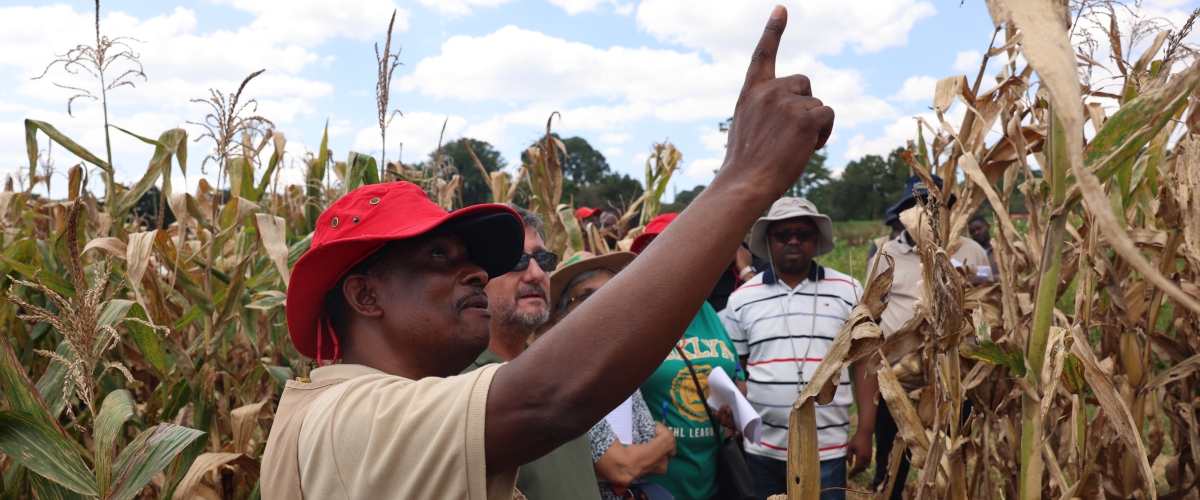
The Centre for Coordination of Agricultural Research and Development for Southern Africa (CCARDESA) undertook the second leg of backstopping mission aimed at providing technical guidance towards improving implementation of the Agricultural Productivity Programme for Southern Africa (APPSA) in the Republic of Angola.
This activity was undertaken from the 29th of April to the 6th of May 2023 with Independent Reviewers. APPSA is a six-year World Bank funded programme based on collaborative implementation of Research and Development (R&D) sub-projects involving two or more countries with regional coordination by CCARDESA. Currently, Angola and Lesotho are co-implementing 43 R&D sub-projects on commodities of regional importance and results are expected to benefit both countries and the rest of the SADC region through spillover effects.
In Angola, the mission was able to visit field trials led by Scientists implementing the first and second cycles of R&D sub-projects. Sub-projects from the first cycle are at an advanced stage and will be phased out at the end of the current season. Participants, including Independent Reviewers, were granted with the opportunity to appreciate, interrogate, and provide critical recommendations on improved research models and protocols for the attainment of better results, in particular the dissemination of technologies.
Field visits included multilocation trials on cassava, maize, sorghum, pearl millet, and beans in Huila, Namibe, Huambo and Cela as well as dissemination initiatives. The visits were supplemented by a scientific workshop on the last day of the mission in which scientists presented in plenary the summary of their accomplishments. In the same workshop, there were presentations and discussions on APPSA Project Implementation Unit related activities such as Environmental Social Safeguards, infrastructure development, Procurement, Finance and Information, Communication and Knowledge Management.
Overall, on maize, the mission visited on-going trials on developing drought tolerant in-breed lines using double haploid approach including fall armyworm resistant germplasm. Whereas on sorghum, the selection of improved materials has just been completed with the involvement of farmers. On pearl millet, the mission appreciated efforts towards selecting varieties with better performance under soils with low pH. And, on beans and cassava visitors discussed adaptability trials under different conditions as well as morphological and molecular characterization studies.





